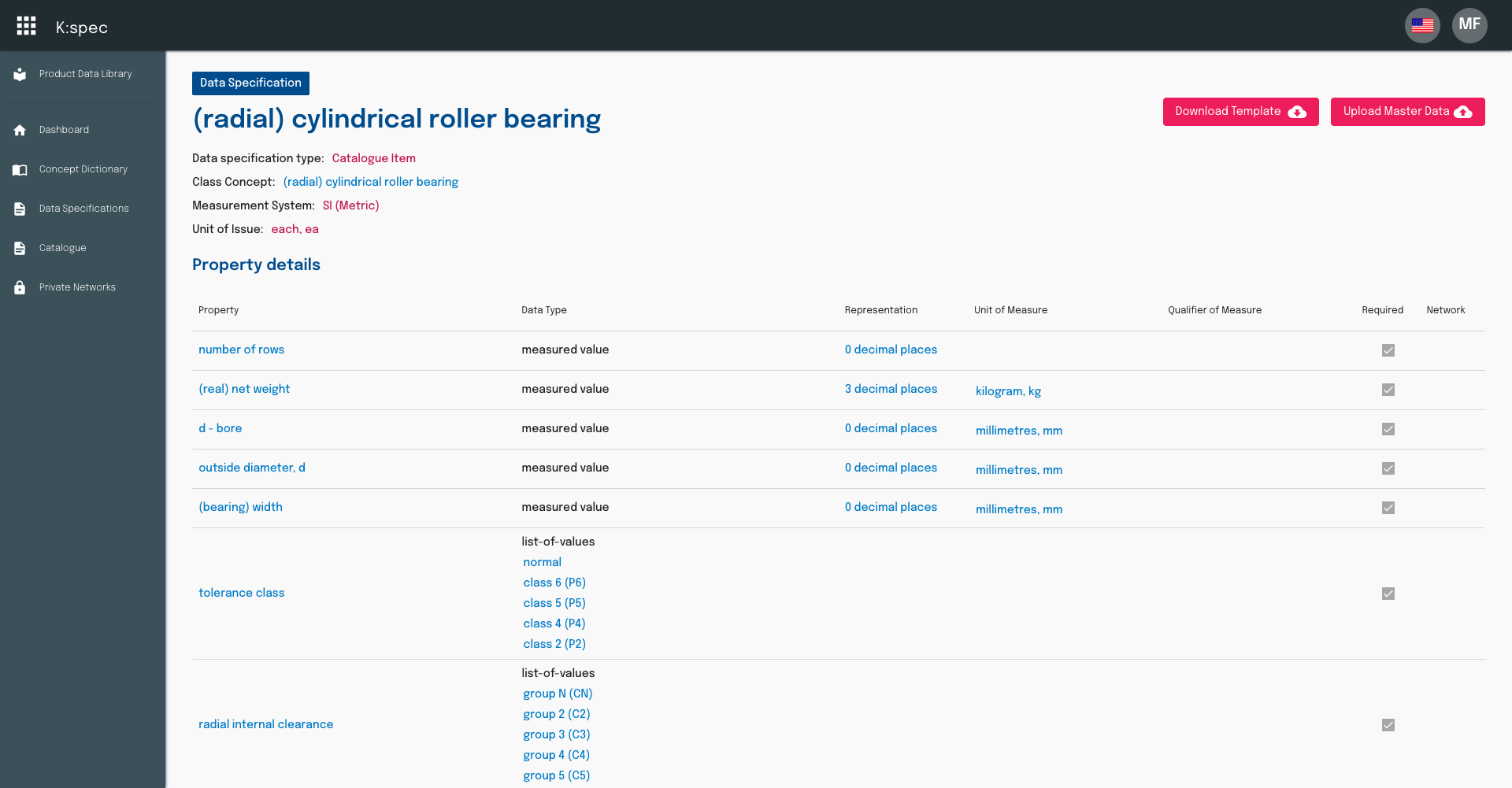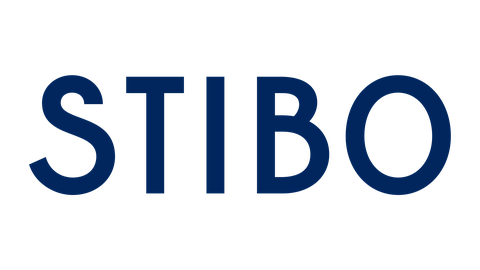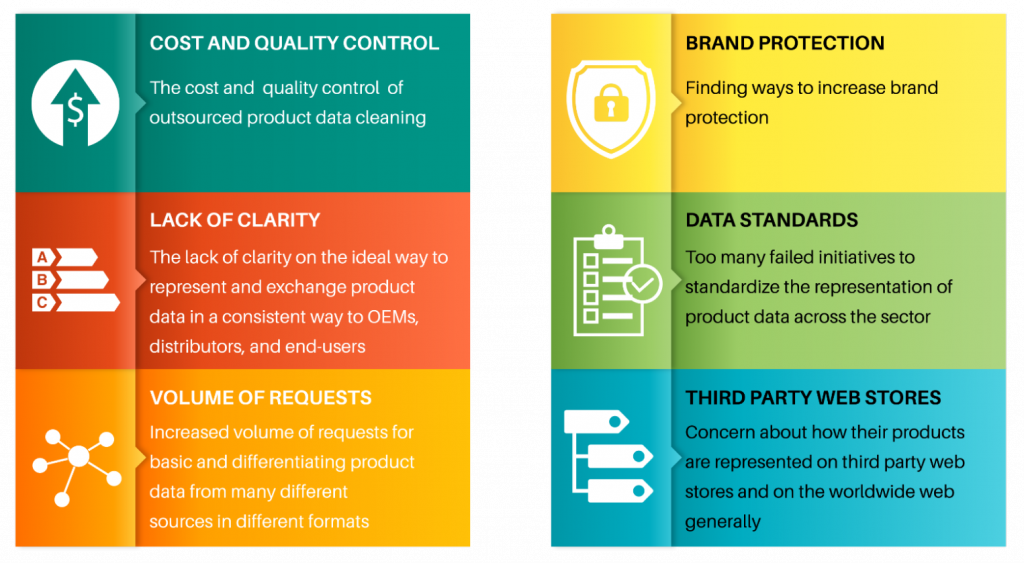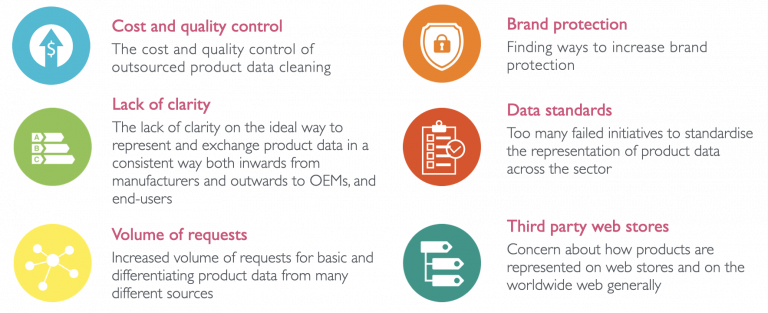Technical Advantages.
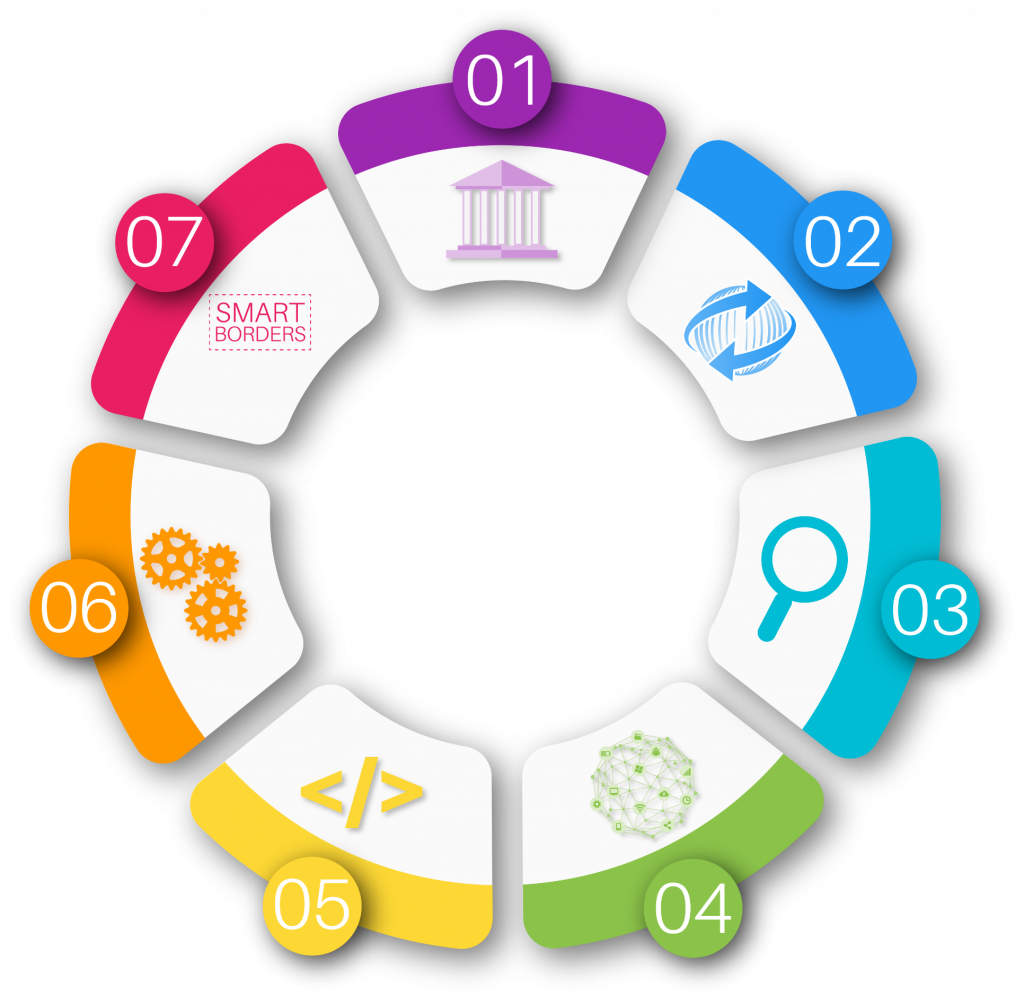
Powered by the KOIOS Core
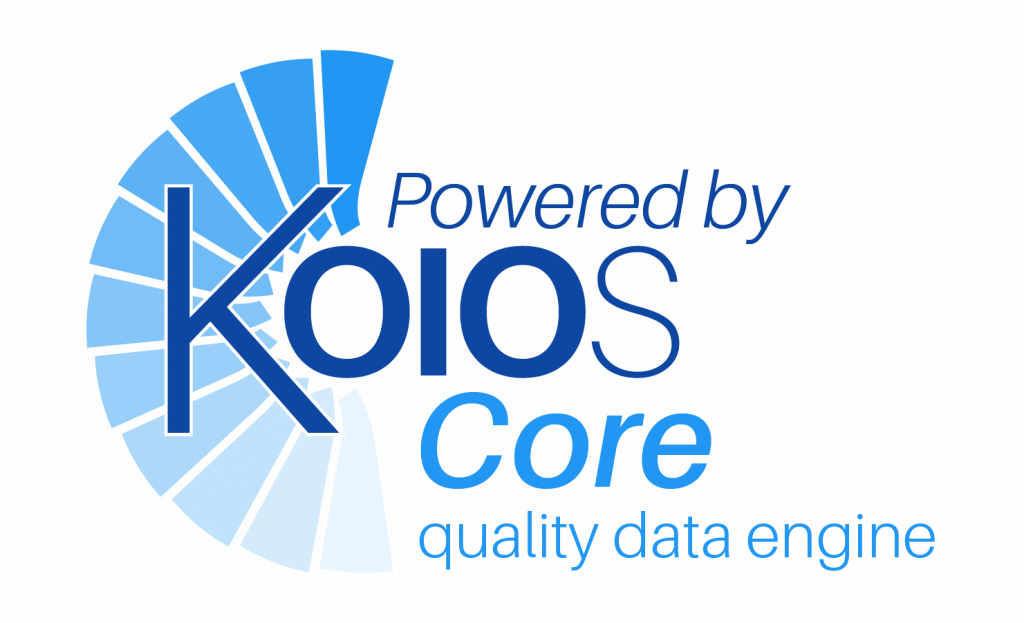 KOIOS Core is the foundation from which quality data is built. KOIOS Core consists of a data dictionary that contains over 100,000 terms and definitions grouped into concepts from authoritative sources, and a data specification library containing more than 40,000 data specifications that subscribers can select from.
KOIOS Core is the foundation from which quality data is built. KOIOS Core consists of a data dictionary that contains over 100,000 terms and definitions grouped into concepts from authoritative sources, and a data specification library containing more than 40,000 data specifications that subscribers can select from.
KOIOS Core is the knowledge base from which you build your own quality data.
Subscribers can create their own “digital ready” corporate dictionary in the KOIOS platform. A quality corporate dictionary is the essential key to the standardization of your data, and will help you prevent duplication by mapping your terminology across your business systems, (PIM, ERP etc) and trade and supply ecosystems.
The KOIOS platform is based on the architecture specified in the International Data Quality and Characteristic Data Exchange Standards: ISO 8000, ISO 22745, and ISO 29002.
For subscribers to the KOIOS platform, this architecture has a number of advantages:
– organizations are not forced to adopt new terminology when they want to adopt standards with Reference Data Libraries (RDLs) such as ISO 15926-4; they can map their existing terms to the concepts in the KOIOS dictionary where the ISO 15926-4 RDL is already adopted
– data specifications are created from the data dictionary, as they are in an RDL, but when you want to exchange a data specification with your supplier or customer using the KOIOS platform, you do not have to exchange the complete RDL, as all the terms in the KOIOS dictionary are resolvable via a simple API
– the KOIOS platform is “digital transformation” ready. You can exchange machine-readable data specifications and complete master data records in JSON or XML, without loss of meaning, in multiple natural languages
– receivers of the data messages can resolve the message free of charge
– data exchange that meets the requirements of the US Open Data Act
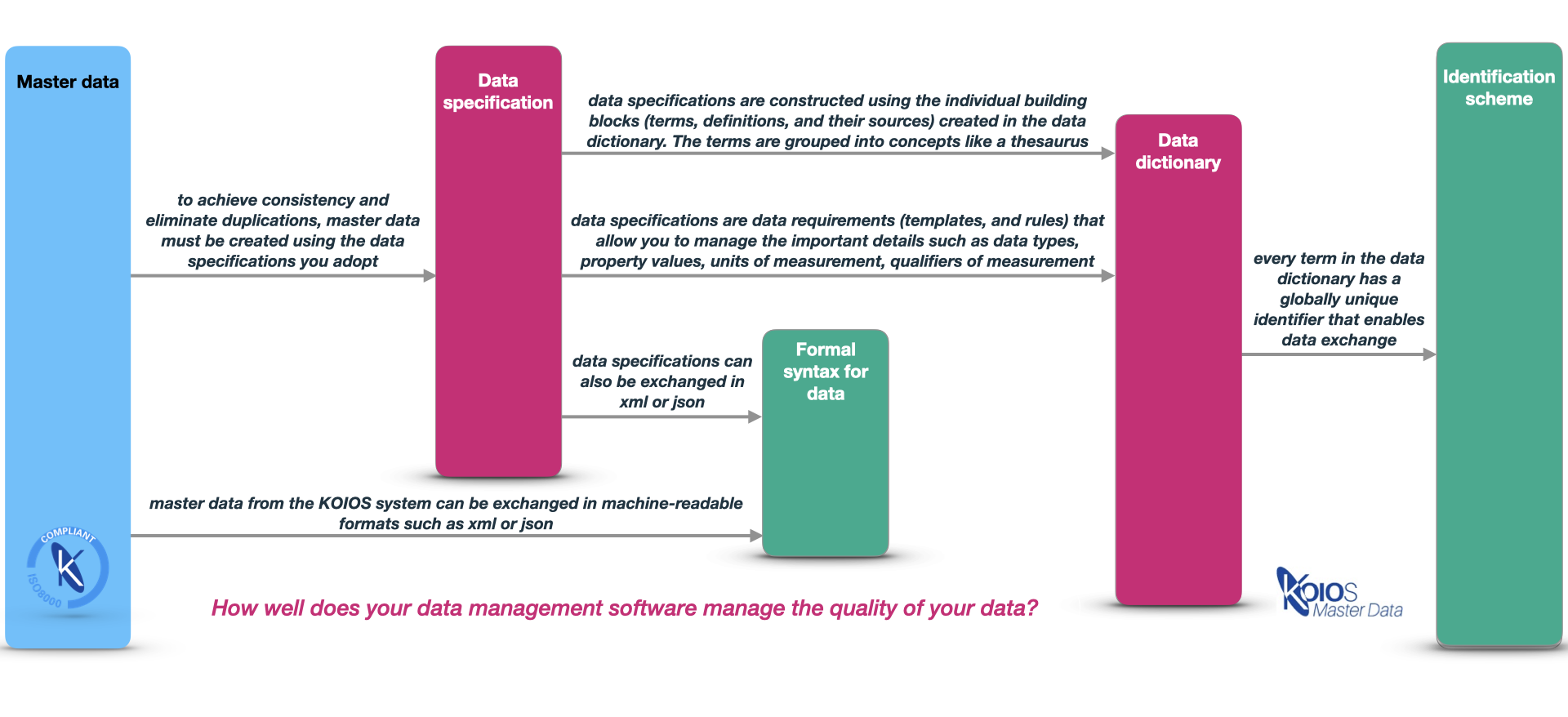
Data Dictionary
The KOIOS data dictionary contains the essential building blocks for creating quality data. The KOIOS data dictionary contains over 100,000 terms and definitions from authoritative sources, such as ISO, IEC, API, grouped into concepts that enable thesaurus style search results.
As a subscriber to the KOIOS platform you can add your own terms and definitions to existing concepts, and specify the preferred term that your organization wishes to use from the alternatives available. Subscribers can query the dictionary to search if a potentially new term exists, and the system will return their own previously defined preferred term.
In the gif below your organization has specified traffic signal as the preferred term, and when your colleagues in South Africa want to know what you call – an object that to them is a “robot” – it will return “traffic signal” as the preferred term from all the alternative terms mapped to it.
Corporate dictionaries are the essential key to the standardization of your data and will not only help you prevent duplication by mapping your terminology across your business systems, (PIM, ERP etc) and trade and supply ecosystems, but a well managed corporate dictionary will prevent loss of meaning, and also help you improve the clarity of your reporting.
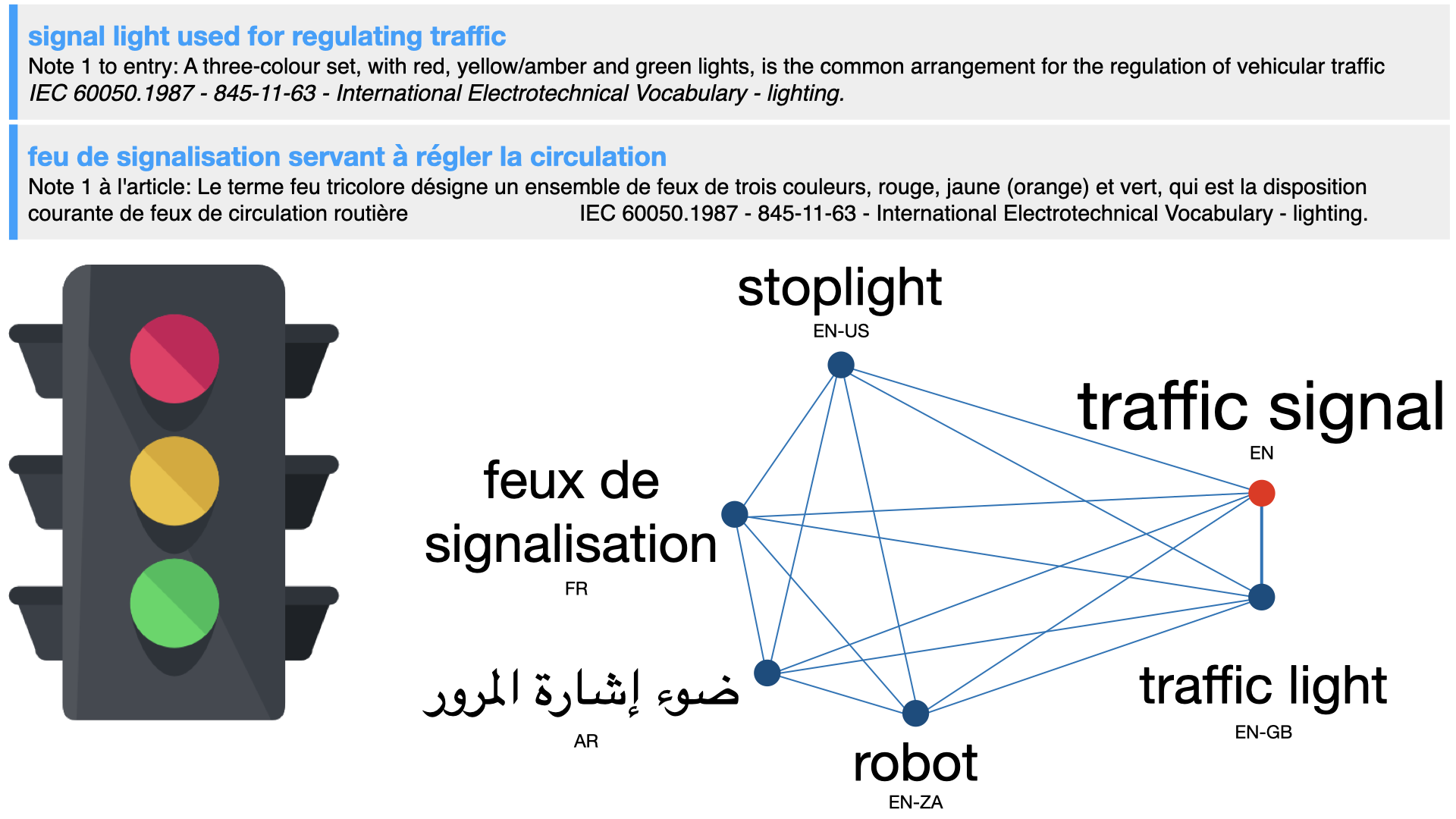
Data Specification
Subscribers to the KOIOS platform have access to an unrivalled data specification library consisting of more than 40,000 specifications found in authoritative sources such as ISO, and IEC standards, organizational standards such as NATO, and industry specific standards such as CFIHOS. Managing these data specifications in the KOIOS platform gives users extra ability to create the highest quality data.
A properly constructed data specification is the framework that ensures consistent and high quality data. Data quality problems are not resolved simply by the top-down approach of imposing a taxonomy, but high data quality is achieved by managing the detail, and this is achieved by building from “the bottom-up” – that is in technical terms – granular management of the “value tuple”.
For subscribers to the KOIOS platform there are many advantages that flow from the fact that KOIOS has adopted the data quality and digital data exchange standards: ISO 8000, ISO 22745, and ISO 29002:
